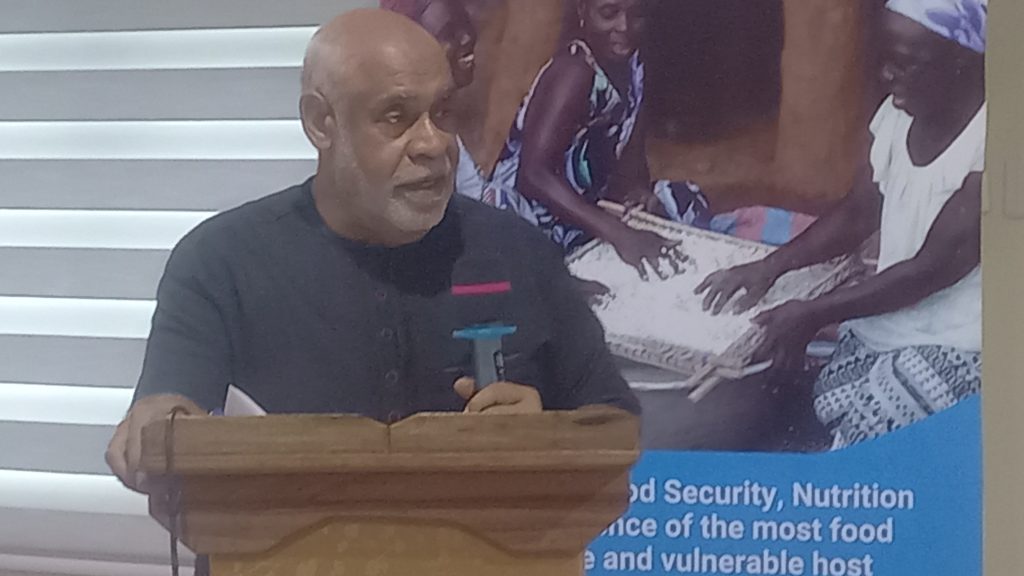By Anthony Adongo Apubeo
Bolgatanga, Sept 28, GNA – The United Nations (UN), in collaboration with the Upper East Regional Coordinating Council, has launched a joint project to enhance food security, nutrition and resilience of asylum seekers and host communities.
The 18-month intervention, which would be supporting about 2,000 most vulnerable asylum seekers and 8,200 host communities in the Upper East and Upper West Regions is a One million Euro project funded by the Government of France under its Food Assistance Programme.
The project is also in line with the Gulf of Guinea Joint Response Plan for Ghana and will be implemented by some UN agencies namely the World Food Programme (WFP), United Nations Children’s Fund (UNICEF) and the International Organisation for Immigration (IOM).
It aims to address food insecurity and malnutrition as well as build the resilience of vulnerable asylum seekers and host communities by integrating livelihood strengthening, prevention and treatment of malnutrition and social and behaviour change interventions for the adoption of positive health and nutrition lifestyles.
Speaking at the launch in Bolgatanga, Mr Charles Abani, the UN Resident Coordinator, said the launch of the project signified a shared commitment of stakeholders as recommended by goal 17 of the Sustainable Development Goals (SDGs) to uplift the most vulnerable in society and working to integrate them.
He said Northern Ghana, particularly North East and Upper West Regions, were severely impacted by food insecurity due to factors of climate change, drought and flooding, non-affordability of nutritious food, conflict and security issues, soil degradation, limited infrastructure, poverty, harsh conditions and post-harvest losses.
“This situation has been worsened by the instability in the Sahel region, especially in neighbouring Burkina Faso which has forced thousands of asylum seekers to cross the border into Ghana,” he said.
“As of March. 2023, UNHCR, the UN Refugee Agency, recorded close to 15,000 asylum seekers with projections indicating that this number could reach somewhere around 28,000 by the end of 2024.
“This influx has placed immense pressure on the already fragile communities in the Upper East and Upper West Regions who are grappling with limited resources and services,” he added.

According to the UN Resident Coordinator, poverty levels and impacts of malnutrition such as anaemia and stunting among others in the two regions, were dire and above the national average requirement and the project was designed to address those critical challenges head on.
He said the project, which would mostly focus on the vulnerable including women, pregnant and lactating mothers and adolescent girls, would also provide targeted interventions to improve food and nutrition security while building resilience for the future.
Ms Christine Battesti, a Political Counselor, French Embassy, said food security was not only about nutrition but the cornerstone of achieving health, education and economic stability.
She said women and children were mostly vulnerable and suffered the brunt of food insecurity and instability and the project was the renewed commitment of the French Government to supporting the most vulnerable, especially women and children and help build resilient communities.
In a speech read on his behalf, Dr Hafiz Bin Salih, the Upper East Regional Minister, commended the UN and the French Government for the project and support over the years and reiterated the commitment of the two regions to support the project to succeed and build resilience of vulnerable communities.
GNA